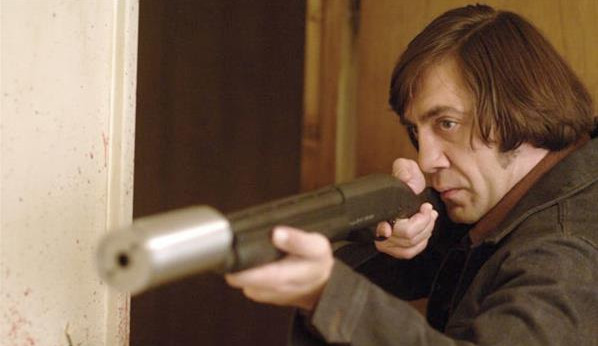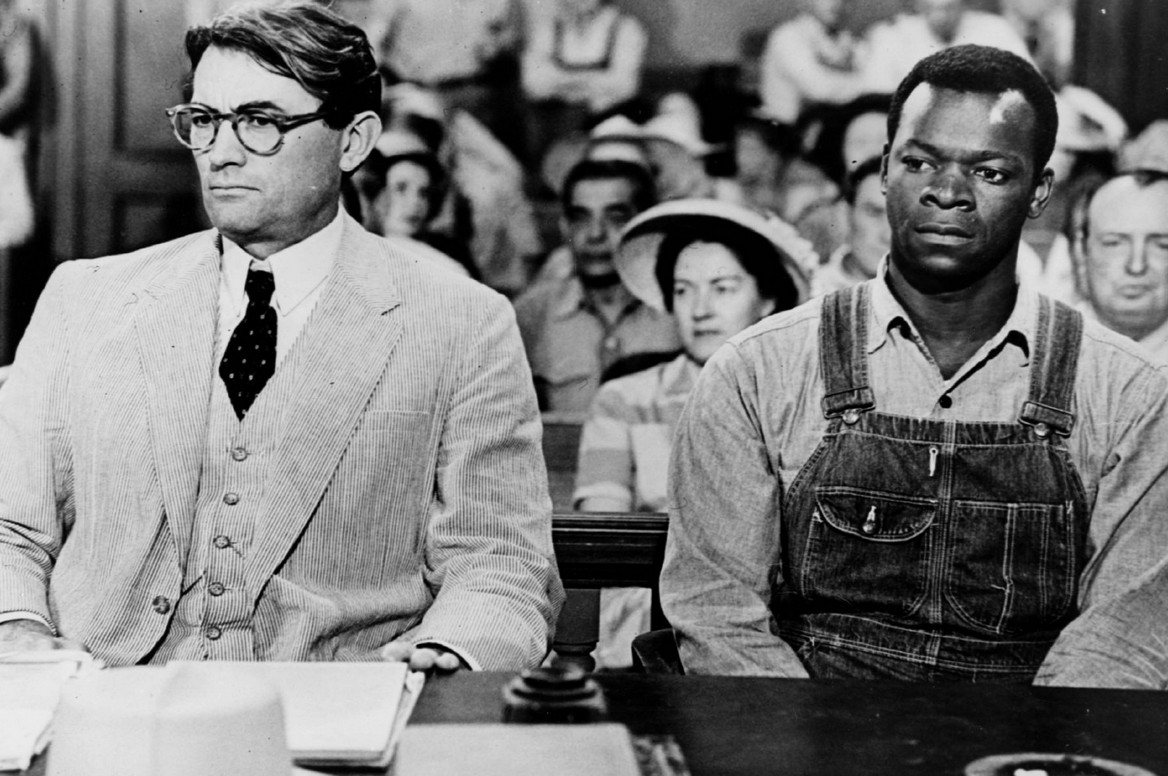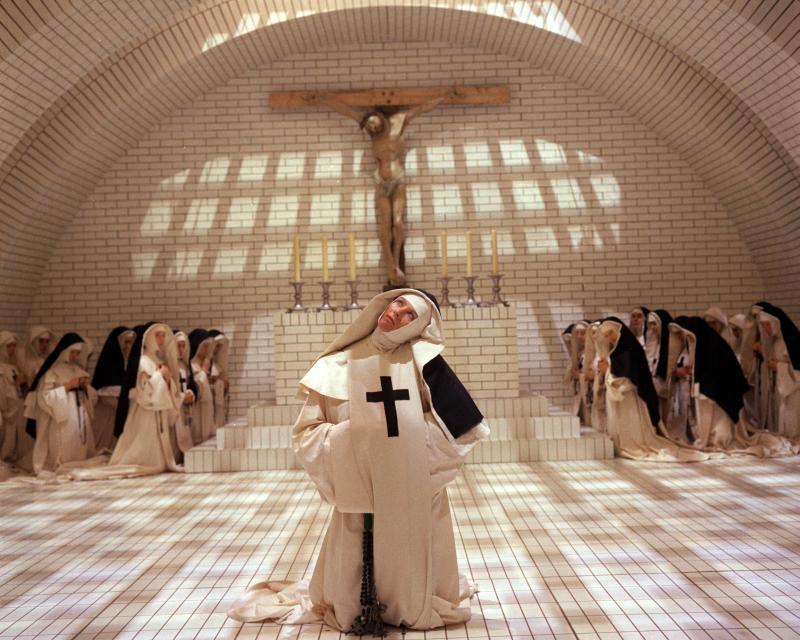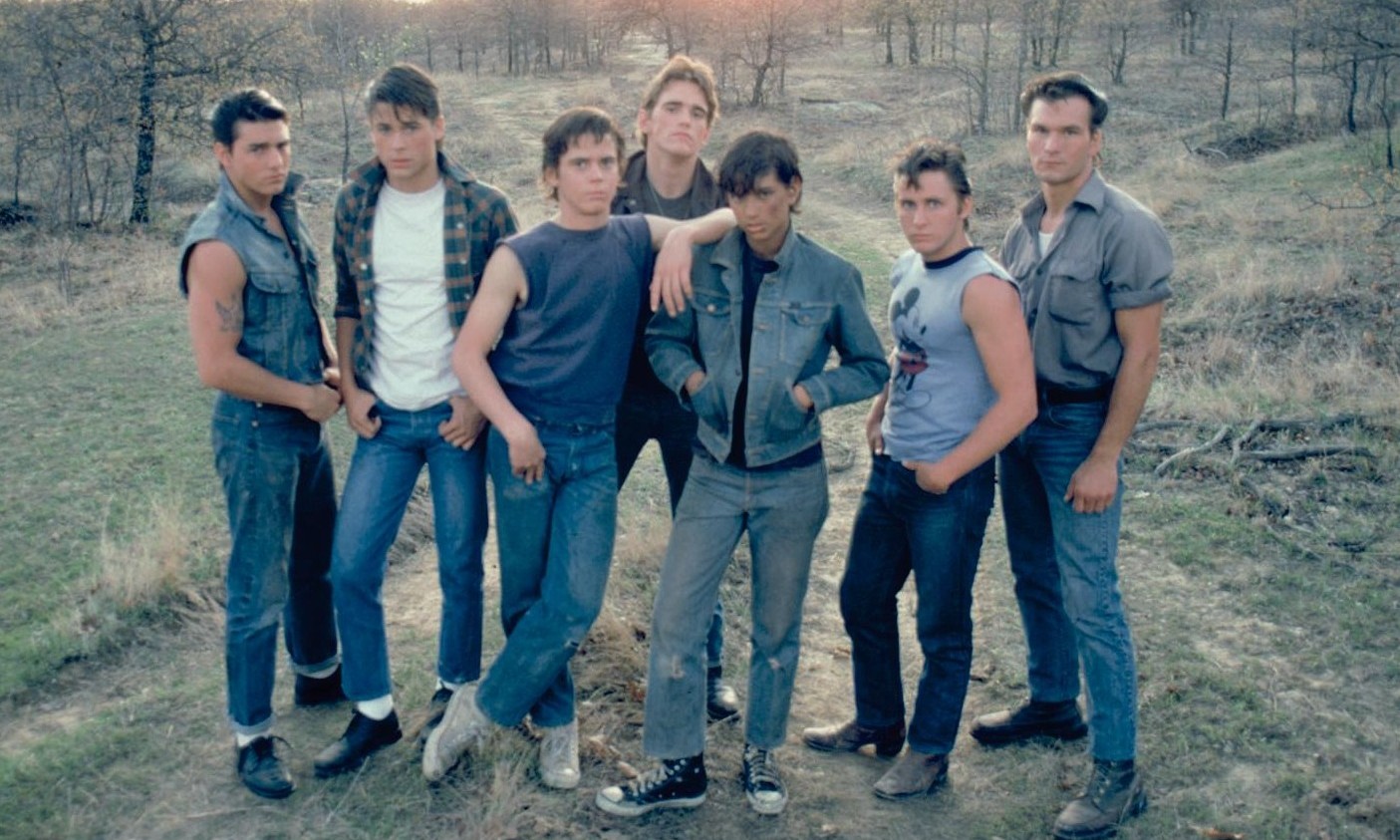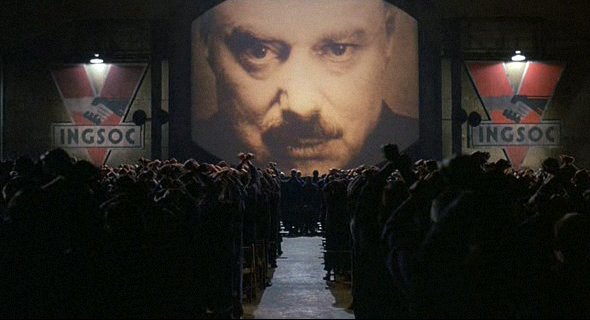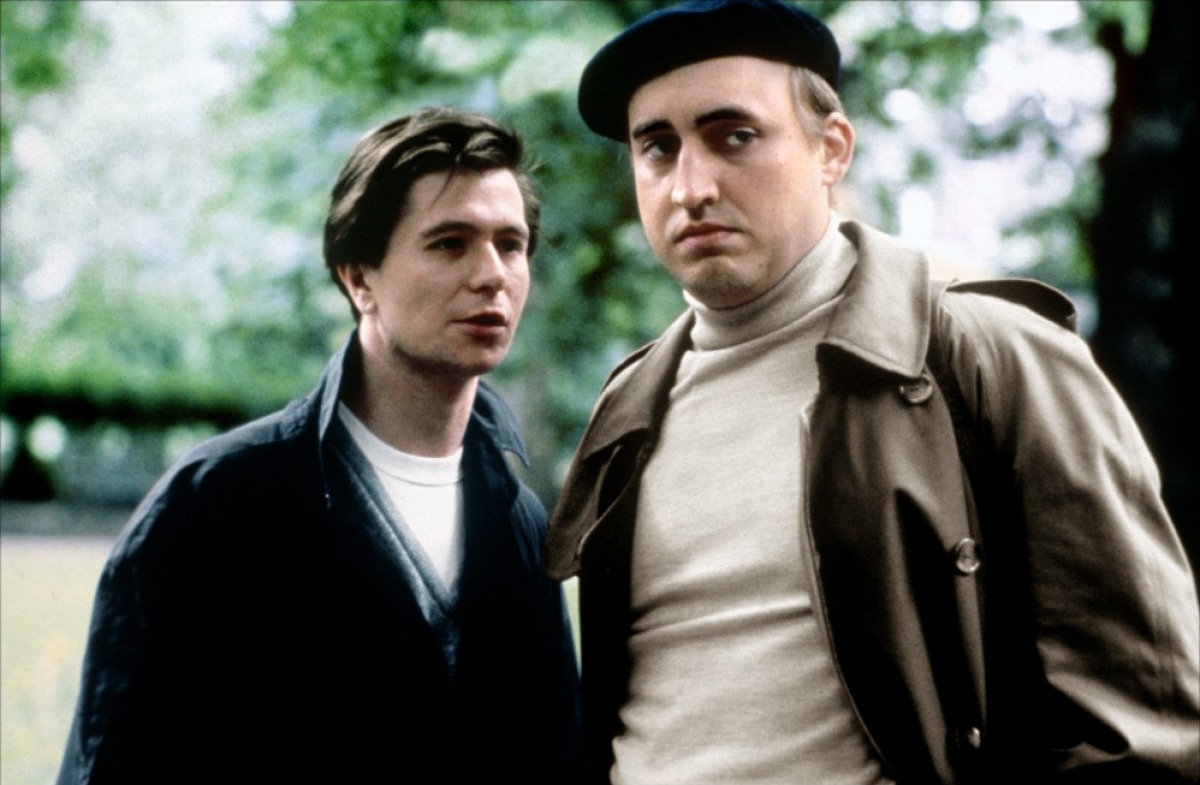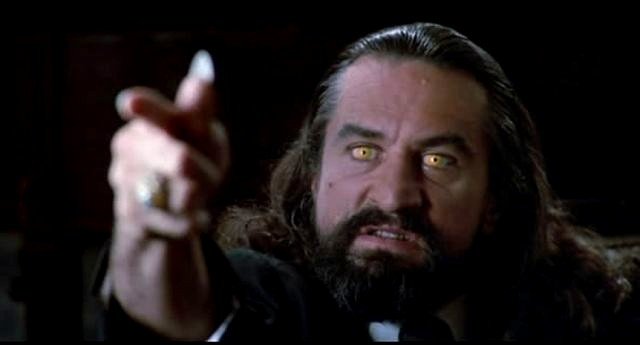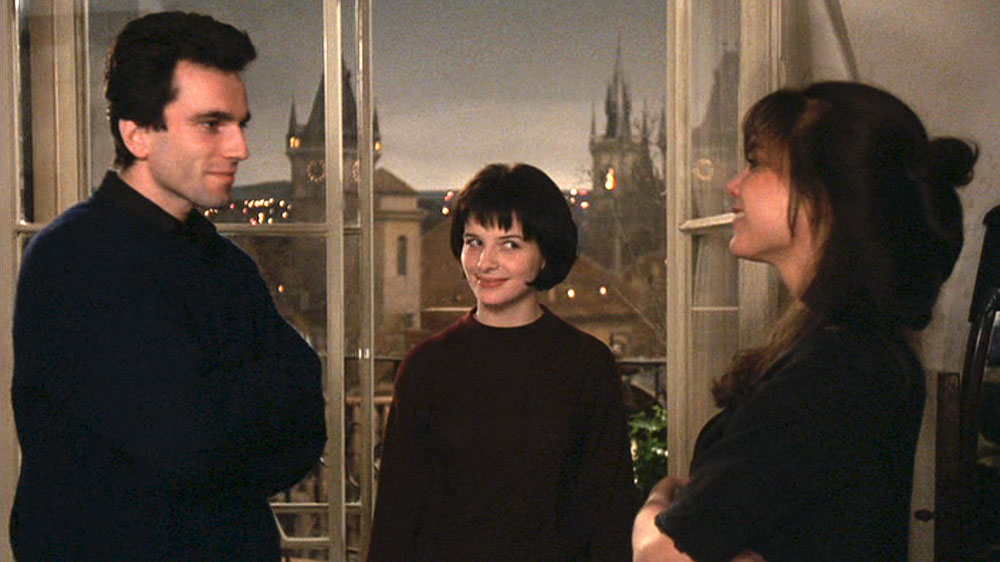Many of films are usually based from the literary works of other authors. However, even when presented with wonderful source material, more often than not the powers that be will make drastic changes for the sake gaining a bigger audience at the box office. This leaves the purists of the original work to shake their heads, fists and protest: The Book Is Better! The plus side, more moviegoers will tend to flock to the novels and the authors gain new audience of readers.
The following is a list of critically acclaimed and controversial books that became well known films. Despite whatever cinematic changes occurred, the films provide a reliable adaptation of the novels and are sometimes revered as the definitive versions subjected endless debates between bookworms and movie-slugs, both of which are akin to some form of snobbery based on personal preferences.
1. To Kill a Mocking Bird (1962)
During the Great Depression in Maycomb, Alabama, a widower and lawyer, Atticus Finch, takes on the case of a black man, Tom Robinson, accused of raping a white woman. He and his children, Scout and Jem, are subjected to ridicule and hatred from the townsfolk. His children are fascinated with a town recluse,
Arthur “Boo” Radley, who makes affectionate gestures to them, but never do they see him. The trial wages on and new evidence surfaces proves Robinson’s innocence, yet he is still convicted of the crime.
Harper Lee’s 1960 Southern Gothic, Pulitzer Prize winning novel is still one of the most prolific and socially relevant pieces of literature dealing with race and class struggles. Two years later, Robert Mulligan would direct the Horton Foote screenplay, which became a box office success and made the Top 25 of the National Film Registry.
2. Catch-22 (1970)
Captain John Yossarian is a reluctant bombardier during World War II who attempts to get discharged from the military by claiming insanity. However, his entire squadron is apparently over-run with troops who all seem to suffer from various forms of mental illness which seems to be the key to their survival or until they become a casualty of war.
Released in 1961, Joseph Heller’s black comedy anti-war story wouldn’t become a #1 Best-Seller until its publication in Great Britain a year later. By 1970, Buck Henry’s screenplay directed by Mike Nichols was not well received commercially or critically. Nominated for BAFTA Award for Best Cinematography, the film would earn a cult following.
3. A Clockwork Orange (1971)
In the near future, England is a virtual wasteland and teenaged delinquent Alex and his droogs enjoy the milk bars, ultra-violence and Beethoven. Inevitably, the gang’s leader and humble narrator is arrested and imprisoned for murder. During his stint, young Alex finds solace in the Bible and volunteers to be a guinea pig for the State’s experimental form of rehabilitation, the Ludovico Technique.
Written in three weeks, Anthony Burgess’ 1962 science fiction book about crime, punishment and redemption was inspired by a true incident involving the author and his wife. Then in 1971, Stanley Kubrick’s script and direction would match the controversial story, which would earn an X rating and subsequently be banned in the UK for almost thirty years. Both the book and the movie would be cited as highly influential since their inceptions for many generations.
4. The Devils (1971)
Power struggles in France during the seventeenth century erupt between a promiscuous priest and a corrupt cardinal. When a hunchbacked nun’s obsession with Father Grandier triggers off a mass hysteria in the convent, accusations of witchcraft and demonic possession begin to surface. The powers that be seek to condemn the guilty parties through trial, torture and public execution.
Based on a historically documented case, English philosopher Aldous Huxley’s “The Devils Of Loudin” was released in 1952 and is one his least known works of non-fiction. Director, Ken Russell’s screenplay earned an X rated version that would later be edited by studio heads, panned by critics and subjected to many protests by Catholics and other religious organization. Regardless of the controversies, the film won the Best Foreign Film in Italy, despite being banned in that country.
5. One Flew Over The Cuckoo’s Nest (1975)
At an Oregon psychiatric hospital in the 1950s, chaos ensues with the arrival of a former prisoner, Randle Patrick McMurphy, who faked insanity to receive the transfer. He is constantly at battle with Nurse Ratched, a woman that has all the patients utterly afraid of her manipulative and disciplinary tactics. The men eventually tire of the abusive staff and seek out rebellious behavior, but usually with dire consequences.
LSD guru Ken Kessey wrote his 1962 novel based on experiences working the graveyard shift as an orderly at a mental health facility in California. The author was a participant in Project MKUltra and became more empathic to the struggles of the patients, under the thumb of an oppressive staff.
The award winning 1975 feature directed by Milos Forman with a script by Laurence Hauben and Bo Goldman, would capture more of the story told through McMurphy (Jack Nicholson) rather than Big Chief (Will Sampson) the Native American patient who gives the impression that he is mute.
6. The Outsiders (1983)
In Tulsa, Oklahoma during the mid-1960s, rivalry between teenage gangs, the working class poor Greasers verses the rich and privileged, Socs, are boiling over. Two timid kids, Ponyboy and Johnny, are attacked after escorting Bob and Randy’s girlfriends home and kill him in self-defense. They meet up with their friend Dallas who provides them with a gun, money and a hideout until things simmer down.
Written by S.E. (Susan Eloise) Hinton, who was a teenager when the young adult novel was published in 1967. Inspired by the two real life gangs at her high school, and she wanted to express sympathy towards the Greasers, choosing also to use initials to keeping her gender ambiguous.
In 1983, director Francis Ford Coppola with Kathleen Rowell’s script would launce the careers of the Brat Pack with an emotionally driven film adaptation. By 2005, he restored some deleted footage with additional music for the “Complete Novel” re-release. Both the book and original film version would be revered as classics.
7. 1984 (1984)
A country immersed in a constant state of war and the worship of the omnipresent Big Brother, an anti-hero and propagandist, Winston Smith, finds a forbidden love a young, deceptive woman, Julia. The two find solace in an upstairs room of thrift shop in working class poor part of town, but double agents are onto to their acts of treason.
Although George Orwell’s 1948 novel “1984” was adapted for television in the 1950s (an abridged American program and a televised play in England), the British film from the year it takes place in, is considered the definitive version.
Michael Radford moody screenplay and direction captures the grimness of a dystopian society spoon fed with lies, violence and paranoia, simultaneously invoking colorful fantasy and humanity. Sir John Hurt is the “perfect” Winston Smith with Richard Burton (in his last role) as the cunning and sadistic O’Brien.
8. Prick Up Your Ears (1987)
In London during the 1950s, a mischievous teenager, Joe Orton, encounters an older man, Kenneth Halliwell, and two become domesticated lovers, with aspirations of becoming writers.
After they are sentenced to separate prisons for defacing public library books in 1962, Orton develops his craft a writer, while Halliwell drifts into psychosis and pill addiction. When released, they reconnect and for next few years, Joe would become a successful playwright, but Kenneth would become resentful and violently jealous.
American theatre critic, John Lahr’s 1978 biography takes its title from an English anagram joke for a proposed script by Joe Orton, which was intended to star the Beatles. Unfortunately, Kenneth Halliwell cut Orton’s life and success short by bashing him to death and then took an overdose of Nembutal. In 1987, Stephen Frears would direct Alan Bennett’s script with compelling performances by Gary Oldman, Alfred Molina and Vanessa Redgrave.
9. Angel Heart (1987)
In the 1950s Brooklyn, a private detective Harry Angel is hired by a mysterious client to locate Johnny Favorite, a popular crooner during WWII, who was critically wounded and disappeared after checking out of a hospital. What Angel encounters is a body count and entanglement with the occult.
Director Alan Parker’s script adaptation of the 1978 novel “Falling Angel” by William Hjortsberg makes a few minor changes, such as splitting up the settings of New York and New Orleans. Regardless, “Angel Heart” is a stylistically sinister, yet gory and erotic take on gumshoe noir with supernatural mysteries. All the performances of the leads are stellar. Captivating cinematography with haunting images, difficult to shake.
10. The Unbearable Lightness of Being (1988)
At the center of the Soviet Union’s invasion of Czechoslovakia in 1968, a love triangle between Tomas, a womanizing surgeon, Tereza, his finance the photographer and a free spirited artist, Sabina take place. The political climate changes their lives significantly as each of them struggle to find contentment in addition to commitment.
Published in France of 1984, Milan Kundera’s historical fiction story wasn’t released in his home country of Czechoslovakia until a year later. The 1988 film had an American director, Philip Kaufman and French screenwriter Jean-Claude Carriere with a predominantly European cast.
Although Kundera served as a consultant during the making of the feature, he found the experience unsatisfying and henceforth declined to have any of his novels adapted into screenplays. Meanwhile, the feature starring Daniel Day Lewis would gain critical praise and revered as one Top 100 American Love Stories.
